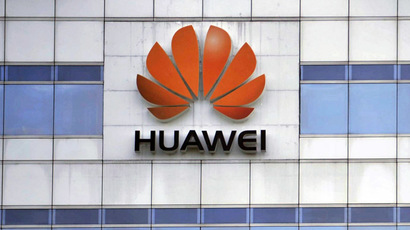‘China’s Google’ invokes 1st Amendment to beat US anti-censorship lawsuit

A US court dismissed a lawsuit against a Chinese internet giant Baidu, which the plaintiff argued blocks material critical of China’s democratic credentials, a decision that could have far-reaching impact on how US search engines sift information.
The lawsuit was brought forward by a group of New York content editors who alleged that Baidu’s search engine was programmed to filter out material in the United States that touches upon the Chinese government’s harsh censorship laws, calling this a violation of the US Constitution.
According to the ruling on Thursday, "Plaintiffs, self-described 'promoters of democracy in China through their writings, publications and reporting of pro-democracy events,' allege that Baidu conspires to prevent 'pro-democracy political speech' from appearing in its search-engine results here in the United States," it read.
US District Judge Jesse Furman in Manhattan disagreed, comparing
Baidu’s algorithms to a newspaper’s editorial stance: “The
First Amendment protects Baidu's right to advocate for systems of
government other than democracy (in China or elsewhere) just as
surely as it protects plaintiffs' rights to advocate for
democracy.”
Baidu, with more than 500 million regular users in China and a
growing following in the US, is the fifth-most trafficked site in
the world, behind Yahoo.com, YouTube, Facebook and Google,
according to Alexa, a website traffic monitor.

The court’s decision in favor of the Chinese Internet firm raises
the question as to whether the First Amendment protects as
“free speech” the search results delivered by US-based
Google, for example. Indeed, the ruling sets down a significant
legal precedent that gives the leading Internet companies
“editorial” powers to present information in such a way that
conforms to their political, social and cultural views.
Certainly, the hugely influential search engine companies listed
above were hardly disinterested observers to the outcome of the
court case.
In 2012, Google commissioned Eugene Volokh, who teaches at UCLA
School of Law, to write a White Paper (“First Amendment
Protection for Search Engine Search Results"), which lays
down the argument that Internet search engine companies are
protected by the First Amendment when it comes to delivering
their content. In other words, based on such a description, it
would seem that “editorial oversight,” as opposed to the
marketplace of ideas, per se, is the real driving force behind
many search results.
“Once, the leading sources to which people turned for useful
information were newspapers, guidebooks, and encyclopedias.
Today, these sources also include search engine results, which
people use (along with other sources) to learn about news, local
institutions, products, services, and many other matters,”
Volokh writes. “Then and now, the First Amendment has
protected all these forms of speech from government attempts to
regulate what they present or how they present it. And this First
Amendment protection has applied even when the regulations were
motivated by a concern about what some people see as
‘fairness.’”
The plaintiffs were seeking $16 million in damages from Baidu,
which opened an English-language site for developers in February
2013, and plan to appeal the court’s decision. Their lawyer
Stephen Preziosi said that “the court has laid out a perfect
paradox: that it will allow the suppression of free speech, in
the name of free speech.”















